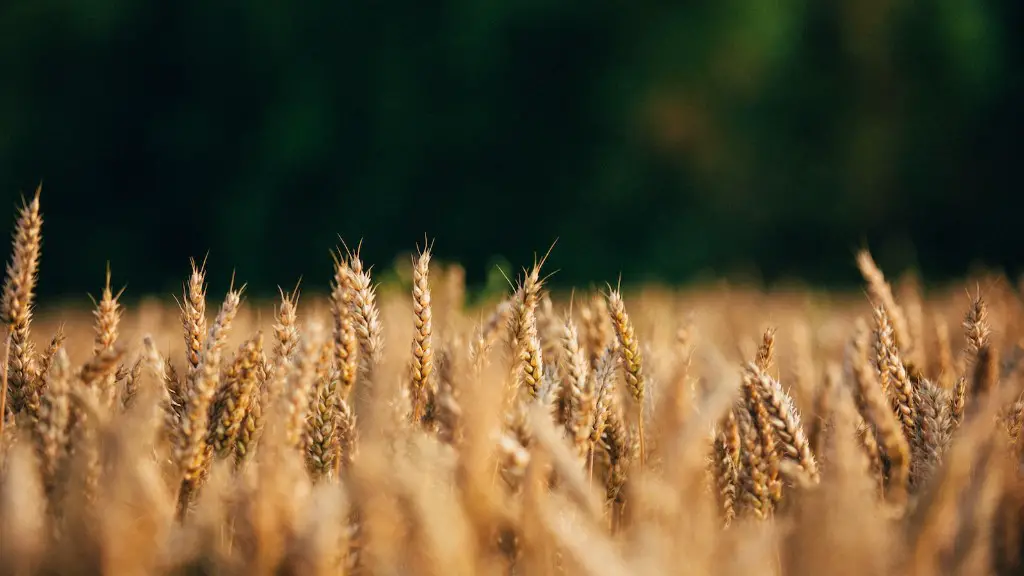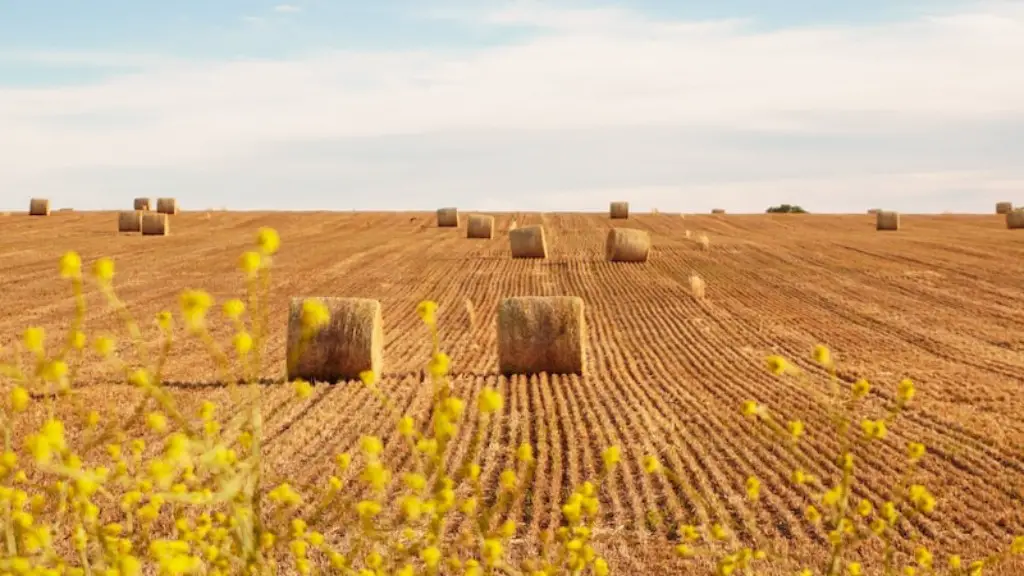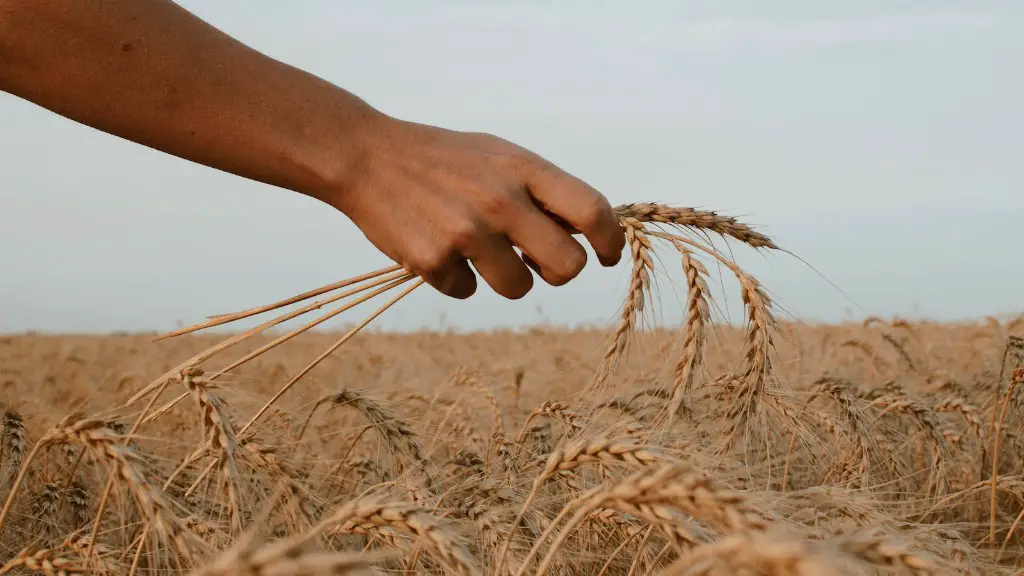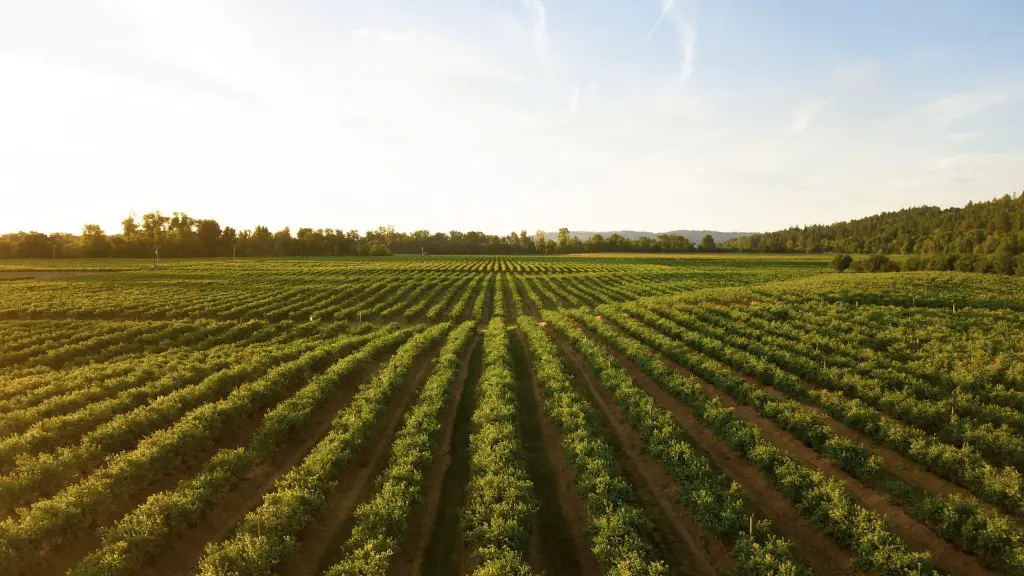The Agricultural Revolution greatly improved the health of people living in agricultural societies. The food supply became more reliable and less susceptible to disease, and new technologies made it possible to cultivate a wider variety of crops. The increased food supply allowed populations to grow, and better health care meant that more people survived to adulthood. The Agricultural Revolution also had a number of negative effects on health, as exposure to new diseases and a sedentary lifestyle led to a decline in fitness and an increase in obesity and chronic disease.
The development of agriculture allowed people to settle in one place, which led to the development of cities and civilizations. This allowed for a more sedentary lifestyle and improved sanitation, which led to better health for people living in these civilizations.
How did agriculture affect people’s health?
Agricultural practices and food systems can have a significant impact on our health. Undernutrition, overnutrition, cancer, fertility, and digestive diseases are just some of the many health problems that can result from these factors. It is important to be aware of these potential risks and take steps to protect our health.
It is true that more abundant food supplies could support denser populations and that farming ties people to their land. However, it is also worth noting that small settlements often grew into towns and that towns often grew into cities. This is because agriculture typically produced enough food that people were free to pursue interests other than worrying about where their next meal would come from. In other words, the development of agriculture was a key factor in the growth of human civilizations.
Did agriculture make people healthier
It is well known that the transition to agriculture led to a decline in the height and health of people around the world. There are many possible explanations for this, including changes in diet and lifestyle, and the introduction of new diseases. Whatever the reasons, it is clear that the transition to agriculture was not an overall positive for the health of humanity.
The increased life span of man due to food availability has led to the establishment of trade due to surplus goods. This, in turn, has led people to go into other fields such as crafts and religion. The result has been the development of new religions.
How did the Agricultural Revolution affect people’s lives?
The agricultural revolution was a period of time in which humans began to cultivate the land for food. This period was marked by a number of changes, including the development of new tools and the domestication of animals. The agricultural revolution had a number of consequences for humans, both positive and negative. On the positive side, the agricultural revolution allowed humans to settle in one place and develop civilizations. On the negative side, the agricultural revolution led to a decline in nutrition and an increase in diseases.
Agriculture has been one of the most important factors in shaping human history. It allowed for the domestication of plants and animals, which led to the development of civilizations. Agriculture also allowed for the growth of cities and the rise of trade and commerce.
Why was the Agricultural Revolution good for humans?
The Agricultural Revolution was a fundamental change in the way that humans lived and managed their food sources. Prior to this change, humans were mostly hunter-gatherers who moved around frequently in order to find food. The Agricultural Revolution allowed humans to settle down in one place and cultivate their own food sources, which made their lives much more manageable. This change in lifestyle also led to the growth of human society in terms of culture and technology.
The Norfolk four-course rotation was a major innovation of the Agricultural Revolution, which greatly increased crop and livestock yields by improving soil fertility and reducing fallow. This rotation involved planting four different crops in succession on the same piece of land, with each crop contributing to the fertility of the soil in different ways. The four crops in the Norfolk rotation were wheat, barley, oats, and peas.
How did the Agricultural Revolution change people’s diets
The shift to a diet that was less diverse and more reliant on starches like wheat and corn had a number of effects on the physical appearance of early farmers. They didn’t look as healthy as they could have because their metabolism wasn’t optimized for this type of diet. This led to a number of health problems, including poor dental health and an increased risk of developing obesity.
Agriculture has been around for centuries and it is one of the most important parts of our lives. It provides food, clothing, and shelter for people and it helps people to enjoy a higher quality of life. Agriculture is a vital part of the economy and it provides jobs for people all over the world.
What was the most important and long lasting effect that the agricultural?
The Agricultural Revolution was a time of great change for people’s lives. The population grew at a faster rate, and people settled into communities. The most important and long-lasting effect of this time was the way it changed the way people interacted with the natural world. For the first time, people began to domesticate plants and animals, and to use them for their own purposes. This led to a whole new way of life, in which people had to work together to survive.
The agricultural revolution resulted in a shift from a hunter-gatherer lifestyle to a more sedentary existence on farms and in villages. This change allowed for an increase in food production, which led to a population growth.
What are 3 benefits of the Agricultural Revolution
The Agricultural Revolution was a time of great experimentation with new crops and methods of crop rotation. These new farming techniques allowed soil to replenish nutrients, leading to stronger crops and better agricultural output. Advancements in irrigation and drainage further increased productivity.
The Agricultural Revolution had a number of negative impacts on human health. People began to rely heavily on one or two crops, so their diets were often lacking in protein, minerals, and vitamins. People began living in larger groups and staying in the same place, so there was more opportunity for transmission of diseases.
What disease came from early agriculture?
The study of ancient DNA shows that the immune systems of early farmers responded to the new, pathogen-ridden environment by developing resistance to diseases such as influenza, tuberculosis, and other maladies spread from animals to people. This resistance was likely a result of the close contact between early farming communities and the animals they depended on for food and other resources. The findings suggest that the ability of the human immune system to adapt to new pathogens is a result of our long history of coexistence with animals.
1. Agriculture is the main source of raw materials for many industries.
2. Agriculture is important to international trade.
3. Agriculture plays a big role in a nation’s revenue.
4. Agriculture provides employment for many people.
5. Agriculture is crucial to a country’s development.
6. Agriculture can help heal the environment.
7. Agriculture goes hand-in-hand with war.
8. Agriculture is a huge part of the economy.
9. Agriculture is a way of life for many people.
10. Agriculture is important for food security.
What are positive effects of agriculture
Urban farming is a great way to reduce your carbon footprint, as it requires minimal transportation and energy use for food production. Additionally, many cities now offer programs that allow you to purchase locally grown produce, which further reduces your impact on the environment.
Farming is good for your health for a number of reasons. Being a farmer is challenging and stimulating work that can provide a source of income in rural areas. Farm work can help develop younger generations by teaching them important skills. Farming can also help the environment thrive by providing fresh, healthy food.
Final Words
The development of agriculture allowed people to settle into communities and form civilizations. This led to improved health and sanitation for people as well as advancements in medicine and technology.
The development of agriculture greatly affected people’s health. It increased the food supply, which improved nutrition and allowed people to live longer and healthier lives. It also made it possible for people to settle in one place, which led to the development of cities and civilizations.





